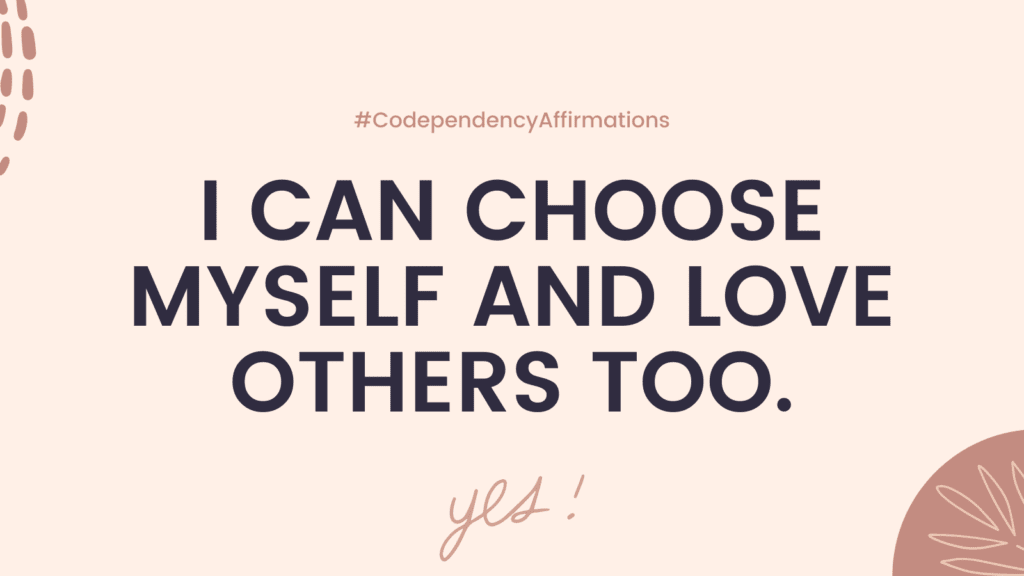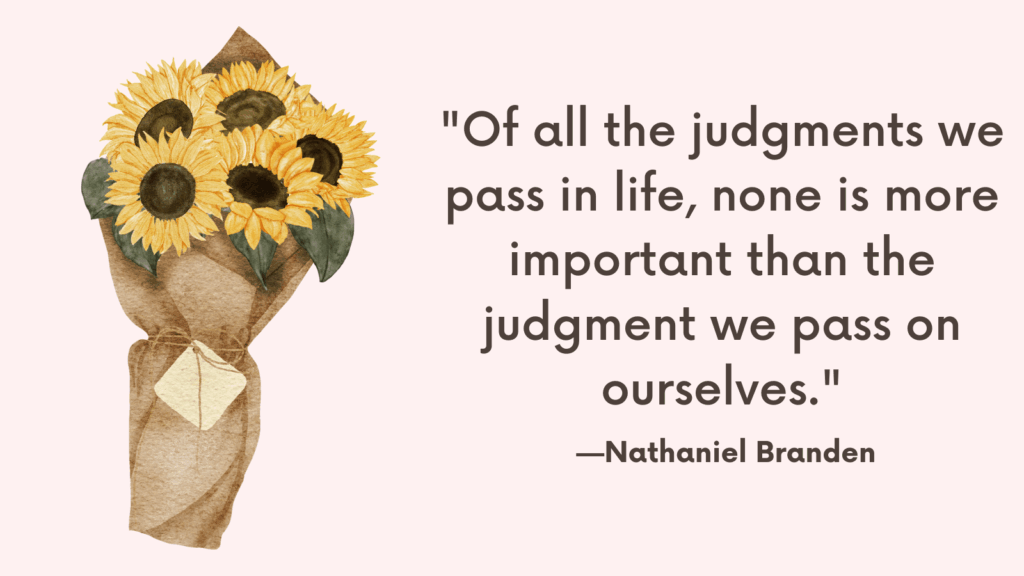In this post, you’re going to learn the difference between empathy and codependency.
Empathy Vs Codependency
Empathy
Empathy is the ability to understand and share the feelings of others.
It involves being able to put yourself in someone else’s shoes and experience their emotions.
Empathy is a fundamental aspect of human connection and is essential for building healthy relationships.
– Emotional Connection: Empathy allows individuals to connect emotionally with others, recognizing and validating their feelings. It involves actively listening, showing understanding, and providing support without losing oneself in the process.
– Healthy Boundaries: Empathy does not require sacrificing one’s own well-being or engaging in self-destructive behaviors. It involves understanding and respecting personal boundaries, both for oneself and others involved.
– Emotional Regulation: Empathy includes recognizing and managing one’s own emotions while remaining present and attuned to the other person’s feelings. This helps individuals respond appropriately and provide compassionate support.
– Reciprocity: Empathy is a two-way street. It involves a balanced exchange of emotions and understanding, creating a supportive environment where both individuals feel seen, heard, and validated.
Related: How To Become A Stronger Empath? Top 20 Actionable Empathy Exercises to Become More Empathetic
Codependency
Codependency, on the other hand, refers to a dysfunctional pattern of behavior in which individuals excessively rely on others for their sense of self-worth, happiness, or identity.
Codependent relationships tend to be one-sided, with one person enabling and taking care of the other at the expense of their own needs.
– Enmeshment: Codependency often involves blurred boundaries, with individuals losing their sense of self and becoming enmeshed with the other person. Their identities, decisions, and emotions become heavily influenced by the needs and desires of the other person.
– Low Self-Worth: Individuals struggling with codependency often have low self-esteem and derive their sense of self-worth from being needed or validated by others. They may fear rejection or abandonment and go to great lengths to avoid it.
– Control and Fixing: Codependents may feel a compulsive need to control and fix others, believing that their worth depends on their ability to rescue or solve problems for the other person. This can lead to a lack of personal boundaries and unhealthy dependency.
– Neglecting Personal Needs: Codependents prioritize the needs of others above their own, neglecting self-care and personal growth. They often sacrifice their well-being, leading to resentment, frustration, and emotional exhaustion.
Related: How To Break Codependency Habits For Good? (+FREE Codependency Worksheets)
Differentiating Empathy from Codependency
While empathy and codependency can appear similar, there are key distinctions between them.
Empathy involves healthy emotional connection, the ability to set boundaries, and emotional regulation.
Codependency, however, is characterized by enmeshment, low self-worth, control tendencies, and neglecting personal needs.
Is It Possible to Have Both Empathy and Codependency?
Yes, it is possible to have both empathy and codependency.
People with codependent tendencies often have a strong desire to help and please others, which can stem from a genuine sense of empathy.
They may be highly attuned to others’ needs and emotions, but struggle to prioritize their own well-being and establish healthy boundaries.
This can lead to an imbalance in relationships, where they excessively focus on meeting others’ needs at the expense of their own.
However, it’s important to note that codependency can interfere with the healthy expression of empathy.
Codependent individuals may enable others’ unhealthy behaviors or become overly invested in trying to fix or rescue others, often neglecting their own needs in the process.
This can lead to unhealthy dynamics, a lack of reciprocity, and the erosion of self-esteem.
Related: Codependency And Enmeshment: 9 Signs You May Be In An Enmeshed Relationship

How to Foster Healthy Relationships?
To foster healthy relationships, it is crucial to cultivate empathy while being mindful of codependent tendencies. Here are some suggestions:
1. Self-Reflection
Take time to reflect on your own emotional patterns and behaviors.
Understand your own needs and identify any codependent tendencies you may have.
Explore the underlying reasons for these patterns and how they may be impacting your relationships.
2. Self-Care
Prioritize self-care and nurture your own well-being.
Cultivate a strong sense of self outside of relationships by engaging in activities that bring you joy, fulfillment, and personal growth.
This will help you establish a solid foundation from which you can show empathy towards others without sacrificing yourself.
3. Boundaries
Establish clear and healthy boundaries to protect both yourself and others.
Understand your limits and communicate them assertively yet compassionately.
Recognize the distinction between supporting someone and enabling their unhealthy behaviors.
Setting boundaries allows you to show empathy while preventing codependent tendencies from overshadowing your well-being.
Related: Top 25 Tips On How To Set Boundaries Without Being Controlling? (+FREE Worksheets PDF)
4. Emotional Regulation
Develop effective emotional regulation skills to manage your own emotions while remaining present and attuned to others.
Practice recognizing and acknowledging your feelings without allowing them to overwhelm or consume you.
This will help you respond empathically without becoming emotionally entangled or dependent on others for your own emotional stability.
5. Active Listening
Practice active listening skills to truly understand others’ perspectives and emotions.
Engage in open-ended questions, paraphrasing, and reflecting back to show that you are genuinely interested and present in the conversation.
Empathy starts with actively seeking to understand others without judgment or the need to fix their problems.
6. Perspective-Taking
Put yourself in others’ shoes and try to understand their experiences, emotions, and motivations.
This involves cultivating curiosity and empathy towards their unique perspectives.
However, it’s important to maintain awareness of your own boundaries and not lose yourself in attempting to live someone else’s life or solve their problems.
Related: How To Overcome High Functioning Codependency?
7. Communication Skills
Develop effective communication skills to express your needs, thoughts, and emotions honestly and assertively.
Learning to express yourself authentically will enable you to engage in healthier and more balanced relationships.
Effective communication also helps you establish boundaries and prevent codependent tendencies from taking over.
8. Seek Support
Consider seeking support from a therapist, counselor, or support group.
A mental health professional can help you navigate the complexities of codependency and provide guidance on developing empathy while maintaining healthy boundaries.
They can also support you in exploring any underlying issues that contribute to codependent tendencies.
9. Practice Mindfulness
Cultivate mindfulness practices, such as meditation or deep breathing exercises, to help you stay present in the moment and reduce reactivity.
Mindfulness encourages non-judgmental awareness of your thoughts, emotions, and behaviors, allowing you to respond to others empathically while staying attuned to your own needs.
10. Self-Validation
Recognize and validate your own emotions, thoughts, and experiences.
Cultivate self-compassion and avoid seeking validation solely from others.
Building a healthy sense of self-worth and self-esteem will prevent you from relying on others for your own emotional well-being.
Related: Best 10 Overcoming Codependency Exercises
Conclusion
Empathy and codependency are two distinct concepts, although they can have overlapping characteristics.
Understanding the differences between them is important for maintaining healthy relationships and establishing appropriate boundaries.



